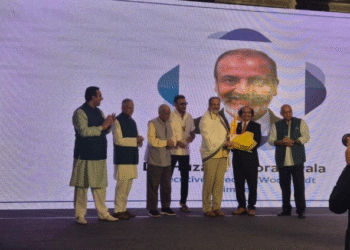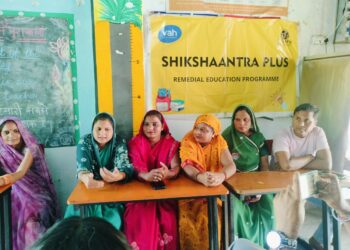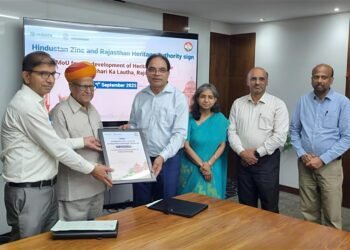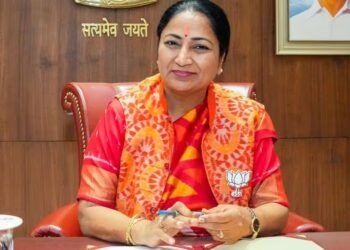NEW DELHI: SOS Children’s Villages of India (SOSCVI), the country’s largest child care NGO dedicated to the welfare of the children who have lost or are at the risk of losing parental care, has signed a Memorandum of Understanding (MoU) with the Government of Meghalaya to design and implement a five-year programme for providing individual foster care to 50 children without parental care.
Individual Foster Care is a form of family-based care wherein children are raised in families other than their biological families. As the implementing agency and technical partner, SOSCVI will assist the Government of Meghalaya in supporting the children and their caregivers in and around Ribhoi and East Khasi Hills districts, the regions identified for this pilot project. The children will be placed in unrelated but suitable families in the community initially for a short period, which could be periodically extended till the child attains 18 years of age.
The MoU was signed by the Secretary General, Sumanta Kar, SOS Children’s Villages of India, and D.D. Shira, M.C.S., Director of Social Welfare, Meghalaya, Shillong.
Commenting about the MoU with the Meghalaya Government, Sumanta Kar, Secretary General, SOSCVI, said, “It is a great honor and privilege to associate with the Government of Meghalaya on this individual foster care project. We have decades of experience in extending care to children lost parental care under the Group Foster Care model in our Children’s Villages, as well as other models of alternative care for every child in need. We already have a strong presence in the state. The SOS Children’s Village Shillong that was established in the year 1999 is sheltering 127 children in 12 family homes. Additionally, over 500 children are under our direct care through the community based Family Strengthening Programme. We are also supporting 22 children through 15 families through the Kinship Care Programme. The knowledge and competency that we acquired over half a century will help us take this project to its fruitful completion. Children require different care solutions based on their need and this project is an attempt towards that.”
He added that SOSCVI will be focusing on empowering the care providers with necessary skills, including parenting, social, emotional, child safeguarding and communication skills, to bring a rights-based approach to their caring practices for ensuring holistic development of the children. Every family/child will have a dedicated mentor/coach within 3 months of enrolment. The technical experts and field workers of the NGO will also train the children and facilitate their holistic development by organizing various activities, besides supporting the children in their career plan and higher education. The NGO will arrange for house visits by its staff every quarter to monitor and record the progress of children and their family. It will assess the overall effectiveness of the programme once every 6 months and make course corrections where needed.
While signing the MOU, D.D. Shira, M.C.S., Director of Social Welfare, Meghalaya, Shillong commented, “the Social Welfare Department is pleased to be joining hands with SOS Children’s Villages of India for fulfilling the rights of children”.
As per the MoU, SOSCVI would also ensure the school admission of all children and provide additional academic support to them within the first two months of their enrollment in the programme.
Meghalaya State Child Protection Society will provide the list of eligible foster parents to SOSCVI with their contact details along with the details of the children who need care and protection. The Government will also provide financial support for the care of children – the foster parents will be given financial support as per Government norms. It is to be noted that the Government of Meghalaya has already set-up a Sponsorship and Foster Care Approval Committee in every district to review and sanction sponsorship and foster care funds.
A Monitoring Committee, headed by the Director of Social Welfare and SOSCVI members, will do periodic monitoring and submit reports and maintain child records. On successful completion of the pilot, the project would be extended and replicated in other districts in the State, in partnership with SOSCVI.





















